VOL.1 2023 Psychographics • Granfluencers • Returnships • Gen Z’s Identity Crisis
MY AGE
WHAT’S
AGAIN?
August 2023
CREDITS
Editor
Mary Kromberg
Creative Direction
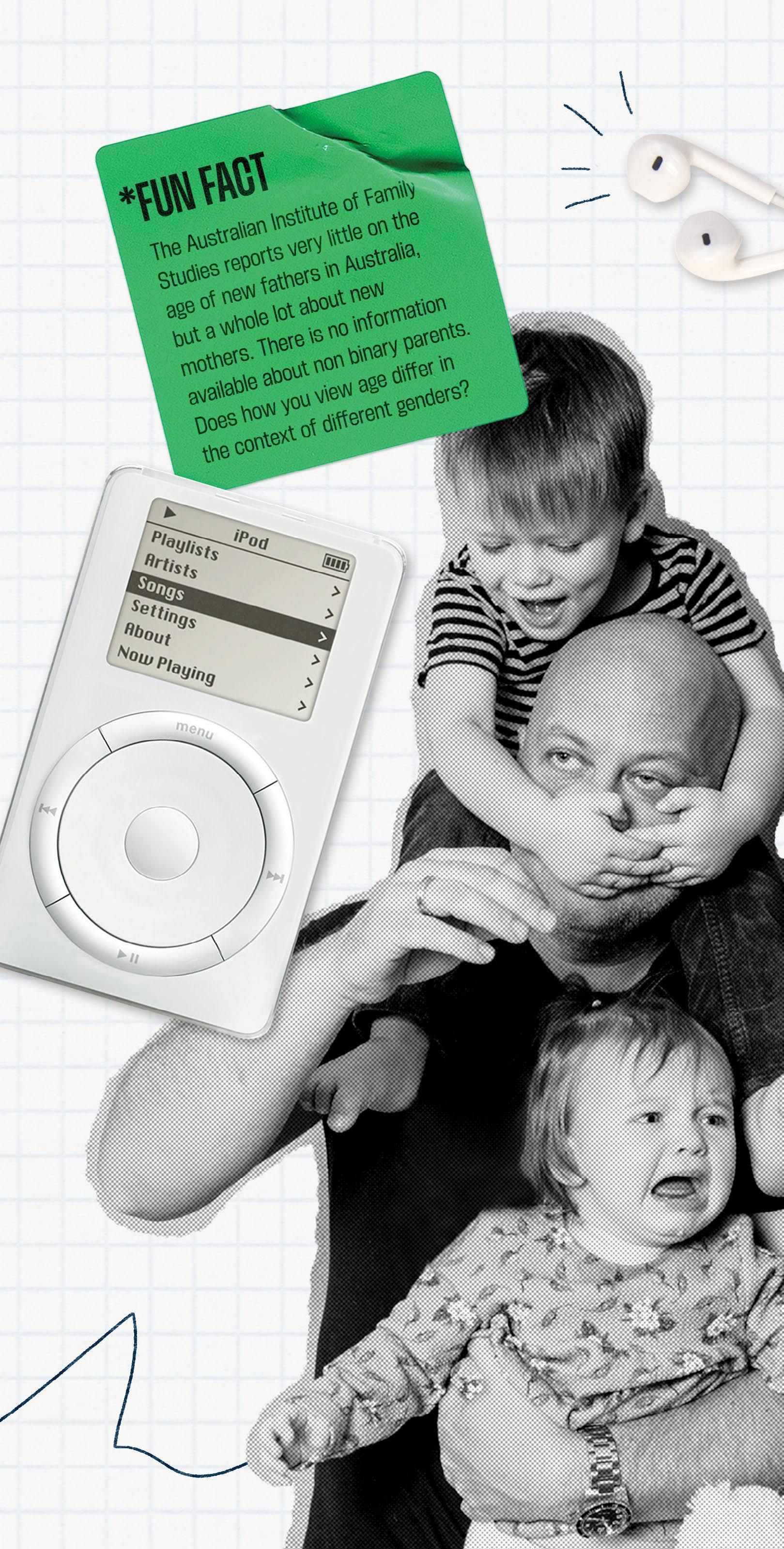
Blair Kimber, Mary Kromberg
Strategy and Research
Laura Agricola, Harris Galloway, Zach Edwards, Larissa Thorne
Contributors
Ruby Gill, Jessica Williams, Harris Galloway, Laura Agricola, Mitchell Blincoe, Caroline Catterall, Ty Ellison, Zach Edwards, Blair Kimber
Design and Illustration
Bryce Pepper
Art Direction
Thomas Rennie, Blair Kimber
Insights
The whole Keep Left community
CONTACT US
info@keepleft.com.au keepleft.com.au
We acknowledge the Wurundjeri people of the Kulin Nation and the Gadigal people of the Eora Nation as the Traditional Custodians of the Country we work on. We recognise their continuing connection to the land and waters and thank them for caring for Country for thousands of generations. We pay our respects to Elders past and present, and extend that respect to all First Nations people.
P1
NOBODY LIKES YOU WHEN YOU’RE 23
When my step-father married my mum, he was 23 - a mechanical engineer fresh out of uni and suddenly promoted to the title of ‘dad’ to a 4-year-old and 2-year-old. For the majority of my school years, I revelled in telling my friends that my mother was a ‘cougar’ (she was 10 years his senior, sorry mum), and on more than one occasion in banks, pharmacies or Home Affairs departments people confused me for his wife, and my mum for our grandmother. Everyone (except mum) found this quite funny, until one day I myself was turning 23, starting my first job here at Keep Left, still wearing pigtails and blasting Blink-182’s ‘What’s my age again?’ through the crackly speakers on my final iPod (RIP) - the realisation dawning on me that I was about a decade away from ever feeling ‘adult’ enough to raise a child.
These days, 23 feels so young to have a kid. In fact, the median age for first-time parents in Australia is now well above 30, and rising*. My respect for my step-father’s ageless commitment has also risen steadily, along with a nuanced understanding that age is so bloody subjective. There really is no one experience of a singular age.
The Blink-182 song goes on to say other profound things like ‘What the hell is wrong with me? My friends say I should act my age’ and tackles with iconic pop-punk directness the core question of this edition:
If you don’t know the song I’m talking about, that’s great - that’s kinda the point of this theme. It probably means you didn’t grow up in the emo mess of the 90s and noughties - or you did, but you cared about other things. Which is normal, as you’ll find out during the next few chapters. Everyone feels quite different about their chronology.
The concept of “acting your age” refers to the societal expectations and norms that dictate how individuals should behave based on their birth date. It suggests people should conform to certain behaviours, attitudes, and responsibilities deemed appropriate for their age group. And maybe you do.
But the assumption that we all do is a trap that brings little benefit to people, businesses or society. It fails to account for the vast diversity of individuals and their unique experiences, preferences, and abilities, as you’ll see on p5. And it overlooks the fact that people mature and develop at different rates, possess different interests, aspirations, and agendas, as we touch on in p19.
In the marketing world, it also leads us down a very narrow tunnel called ‘demographics’ which as our strategists will argue on p13, is not the only way to understand your audience.

So, leave your age at the door and prepare to have your viewpoint well and truly expanded. Find out wtf GrandmaCore is on p7, find inspiration in agebased art on p27 and get your Gen Z assumptions cracked wide open on p17. We hope you leave this edition with a couple of new perspectives, your assumptions challenged and feeling a little more ‘unlikedminded’ in how you view the number on your birth certificate.
Enjoy, kids. Love, your local Left Field Reporter Mary
Kromberg
P2 VOL.1 – WHAT’S MY AGE AGAIN?
Editor’s Note
“What the hell is wrong with me? My friends say I should act my age”
DOES CHRONOLOGICAL AGE ACTUALLY DEFINE US (OR OUR AUDIENCES)?
CONTENTS
Feature Article
Float like a butterfly, age like a bee
P9
Thoughts?
The identity politics of turning 30
P13
Strategy Street
Diving into the real stuff
P19
Rebellion 2.0
Schoolies: My schooner for your smoothie
P23
Take The Old Road
The advent of adventurers
P7
Generation Who? #GetReadyWithMe 2 go see my gravestone
Workin’ It Retire or returnship?
Gen Net-Zero Wearing the cost of inflation
Cooking With Jessica 2001: A crumbed chicken odyssey
P29
The Leftie Perspective In praise of age
P21 P25
CEO Corner My burning question
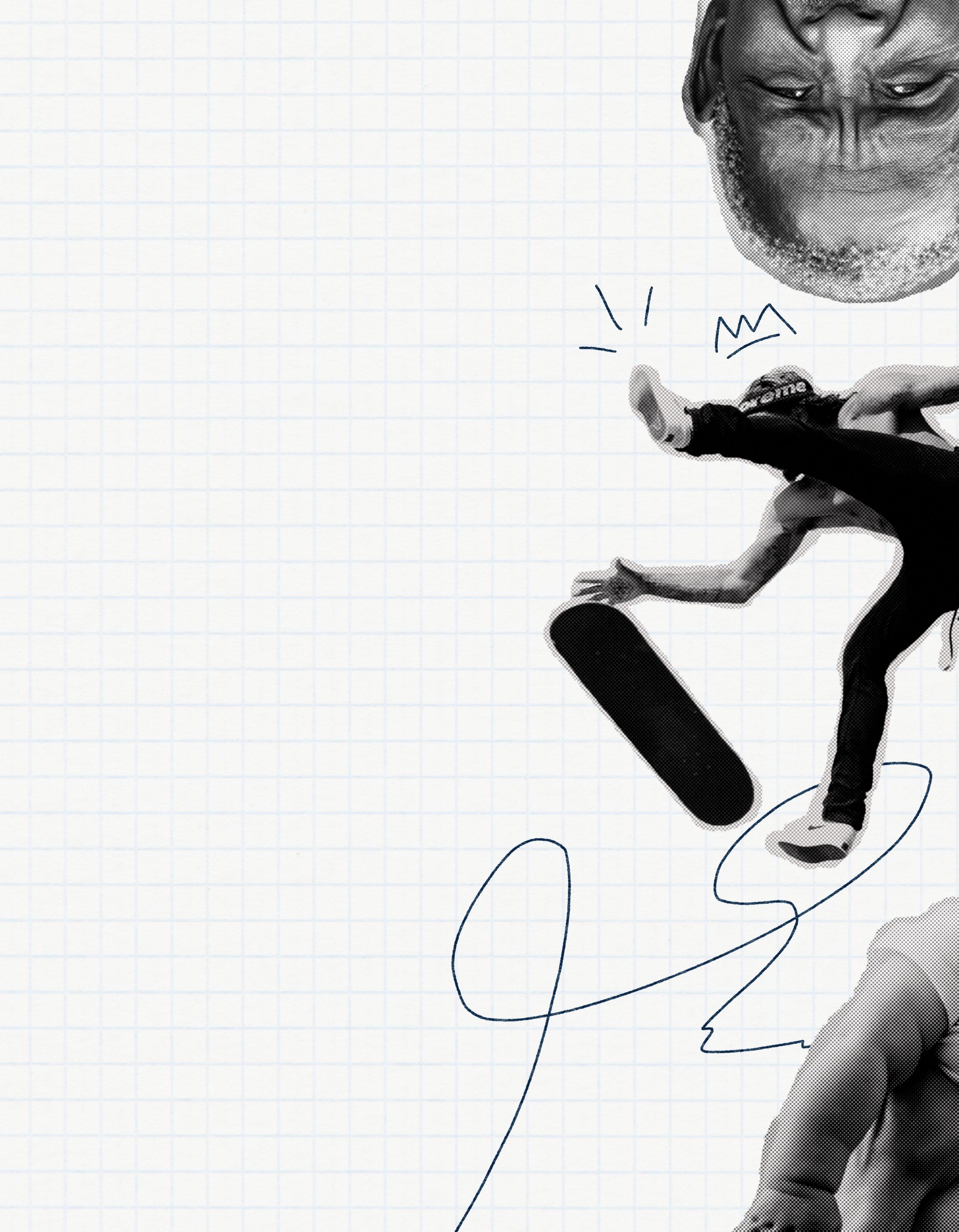
Spoiler Free Film Review Noah Baumbach’s Frances Ha
P26 P27
The Top 5 Records Reminiscence bumps in the road
P11 P17 P30
Wiser Than Me
The podcast that gave me my grandma back
P5
At Keep Left, we think that to truly understand our audiences, we’ve got to expand our viewpoint. In this edition of the Left Field Report, we’re tackling age as a prime example of a topic that might be due for a new perspective. We explore the complex contradictions of ‘acting your age’ and expose the limitation of using age as a method for audience targeting. Come for the granfluencers, and stay for a more nuanced understanding of how brands can foster more authentic and meaningful connections with their employees and audiences – beyond demographics.

FLOAT LIKE A BUTTERFLY, AGE LIKE A BEE
OUR STRATEGISTS FIGHT IN FAVOUR OF PSYCHOGRAPHIC DATA.

FUNFACT
Butterflies usually live for around 15 days. Honeybees cark it more around 60 days. Ancient, in insect years. Take that, demographics. #NotAllInsects
P5 LEFT FIELD REPORT
Feature Article
The year is 1974. Boxing’s most legendary figures are clashing in an epic showdown. Muhammad Ali, 32 years old and deemed ‘past his prime’, stands face-to-face with George Foreman, the unbeatable reigning heavyweight champion who possesses the advantage of youth, being just 25.
In the electrifying build-up to the fight known as the “Rumble in the Jungle,” Ali utters a phrase that would resonate throughout time: “Age is whatever you think it is.”
It was an idea – a mindset – that emphasised his unwavering belief that experience, skill, and indomitable spirit can win out over any physical advantage. That “you are as old as you think you are.”
As the world watched, Ali executed a masterful strategy known as the “rope-a-dope.” Against the ropes, he absorbed blow after punishing blow, round after round, allowing Foreman to exhaust himself. Ali’s plan was to test the limits of his opponent’s stamina, waiting for the perfect moment to strike.
And he found one – a devastating blow that sent Foreman crashing to the canvas.
While the Rumble is a story about determination, defying expectations and the human spirit, it also highlights a tension between societal age-related judgements and individuals who refuse to let those judgements hold them back...
There is a battle for personal freedom and self-expression that comes when the societal pressures to act a certain age clash with how you see age in yourself (see fig 1).
And this tension is mirrored in the consumer relationship (see fig 2). Audiences crave authentic connection beyond age-related stereotypes, but brands tend to rely on demographics and predefined labels when they speak to them.
By bucketing our audiences based purely on the year they were born - pitting Alis against Foremans - we miss the opportunity to connect with audiences who don’t see themselves as fitting into a box - but are still interested in your brand’s offering.
IN A NEW ERA OF CONSUMER EMPOWERMENT, BRANDS NEED TO MAKE A CHOICE :
OPTION 1 OPTION 2
Continue to insist that people should “act their age” and perpetuate confusing and contradictory consumer behaviour.
THE AGE-PARADIGM STRUGGLE
What happens when societal stereotypes of age defy personal or consumer experience?
Connect with people through common values and goals, fostering an authentic and holistic understanding of consumer identity.
The age you feel
The age paradigm struggle
Audiences’ desire to be seen for their values and goals
The demographic blind spot
Pressure to act your age Brands reinforcing age-related stereotypes
We’re going with option two. More on this on P13 >
P6 VOL.1 – WHAT’S MY AGE AGAIN?
FIG 1
FIG 2
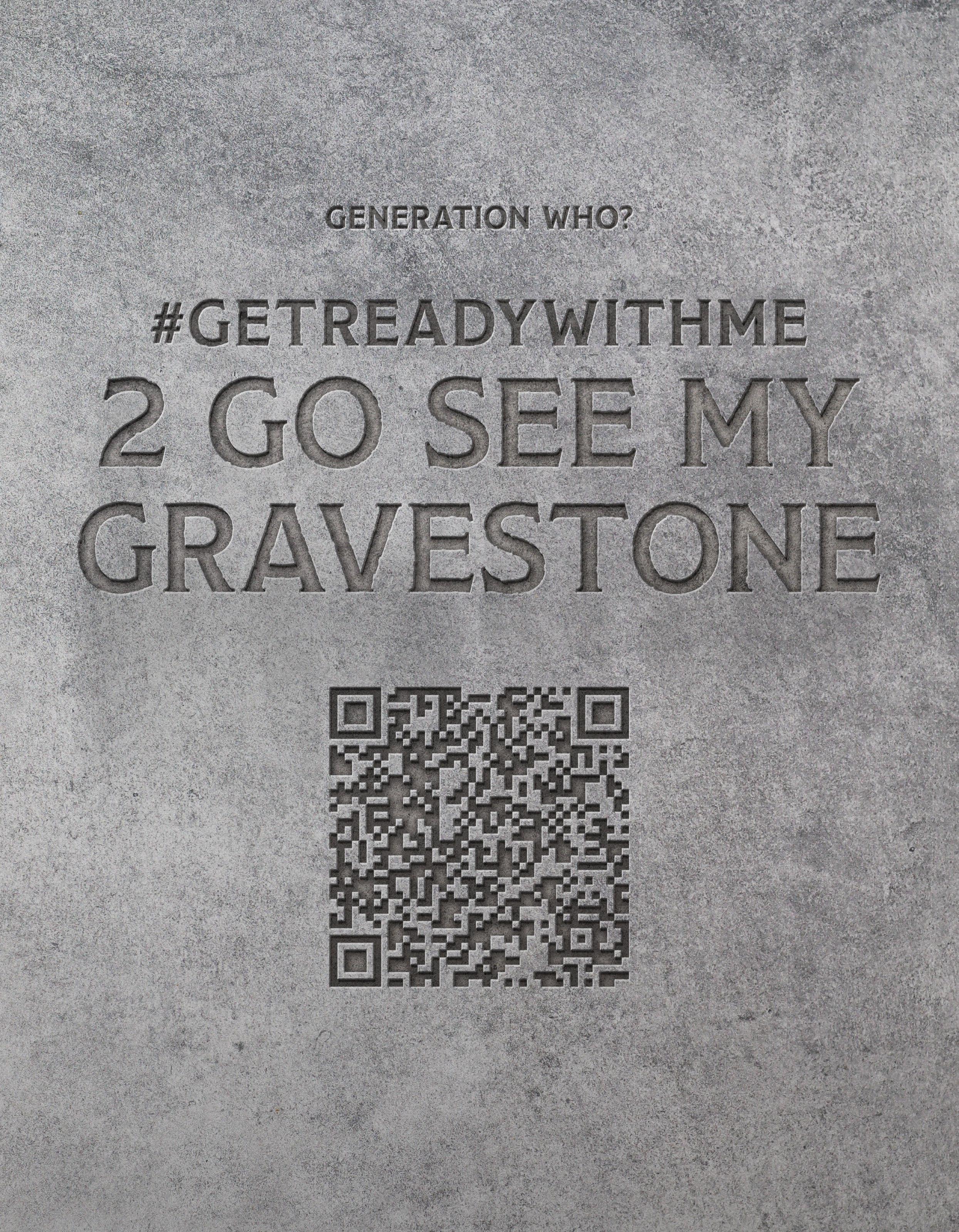
P7 LEFT FIELD REPORT
THE RISE OF THE GRANFLUENCER
@Grandma_Droniak is a TikTok sensation. If you’re interested in the numbers, she currently has 8.7 million followers on TikTok and 973,000 on Instagram. She’s also 93 years old.

Last month’s viral piece was one of her contributions to the ‘get ready with me’ (#GRWM) trend, where people film themselves getting dressed for a specific activity - in this case, G-ma Droniak is going to visit her gravestone. “They’ve just put my name on it, and I wanna see it,” she says with truly iconic sass. Although TikTok is reputed for being the virtual playground of teenagers and young adults, senior sensations are crashing the party, using it to build their personal brands amassing millions of fans of all ages, who enjoy their skits, life advice and entertaining stories.
STRAT CHAT

TikTok’s popularity as a platform lies in its ability to facilitate a sense of community. That’s because people aren’t there to consume the highly polished, inauthentic content of platforms past. And that goes for all ages.
They’re seeking out content that champions diverse voices, makes them feel good, creates a sense of nos talgia, and evokes an emotional connection – whether it’s based on shared interests, sense of humour, or the transfer of knowledge.
It’s a testament to the power of content and its capac ity to connect and bridge generational divides and transcend age stereotypes.
Whether they’re self-made influencers or creating content with the help of their grandkids, they’ve become an interesting alternative to the typical ads.
– Nicola Bartoli, co-founder of the Influencer Marketing Factory
THEVIEW FROMH RE
11% of Aussie TikTok users are 45+ and it’s a cohort that’s growing. Most marketers set aside just 10% of their budgets for boomers. This is a huge opportunity for brands, who should be looking to open new avenues for growth and reach a broader audience with a single piece of content.
It also means you shouldn’t count grandma out when it
WELCOME TO MY #GRANDMAERA
The hashtag ‘Grandma Era’ houses a pretty retro trend: younger people in their teens and mid-20s participating in typically perceived “older” activities like gardening, knitting, baking bread and more. The rise of ‘GrandmaCore’ as an entire identity really turns the assumption that certain hobbies or inter ests have age-restrictions on its head. What’s next?
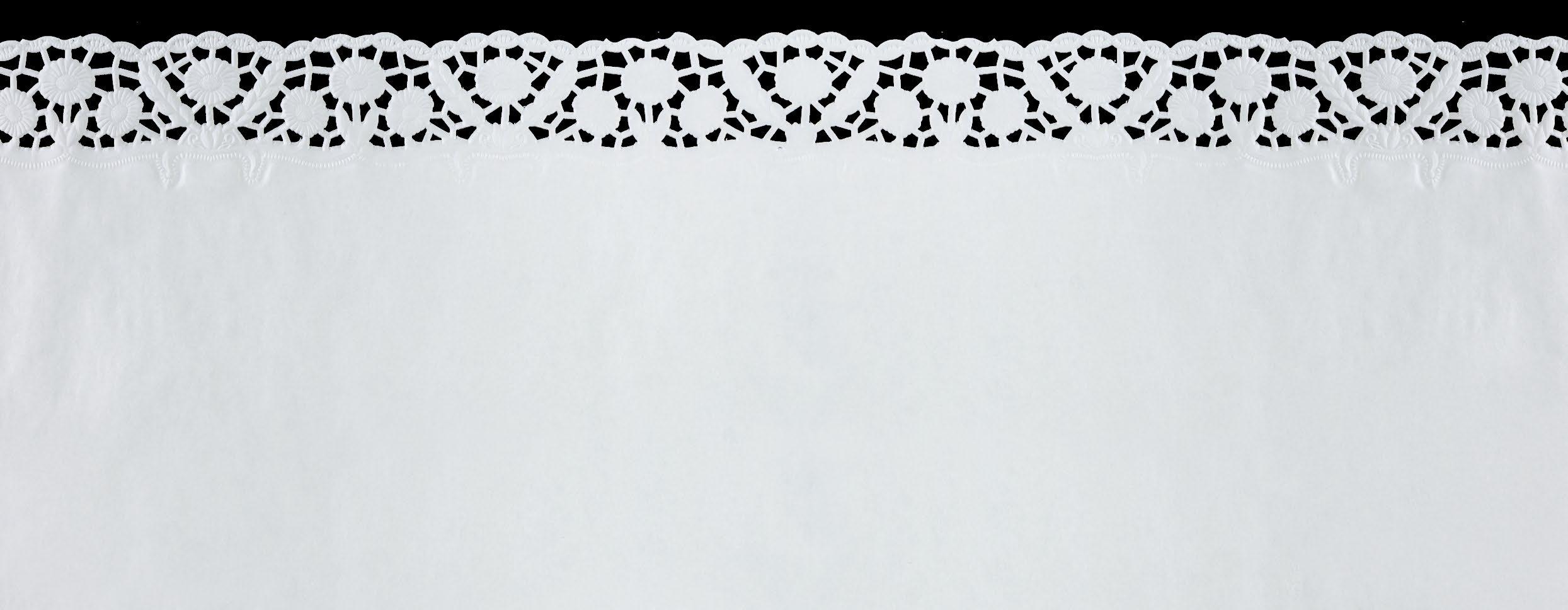
VOL.1 – WHAT’S MY AGE AGAIN?
Thoughts?
BY MITCHELL BLINCOE
Our Account Director goes rogue with his thoughts about the societal pressures of turning 30, and how reaching this milestone has liberated him - in, um, surprising ways...
P9 LEFT FIELD REPORT
THE IDENTITY POLITICS OF TURNING 30
I am turning thirty this year. It’s a confronting milestone that sends a lot of people into a tailspin. I’ve had friends adopt cats, quit jobs, end relationships and move countries all in the name of their twenties coming to a close. What is it about 30 that can push us off the deep end? I think it all comes back to identity - the pressure to have ‘found yourself’ by the big 3-0.
To me, identity is equally about who you are and who you are not. Am I a spouse, or am I a spinster? Am I a gym junkie, or am I a junk food addict? Am I a corporate drone, or am I a carefree backpacker? Am I a good friend, or do we just HAVE to catch up soon (I’ll text you)?
The societal pressure around turning thirty forces us to confront these questions and as I rapidly approach this faux deadline I think about my own identity.

I think by default most people identify as hot, yet so few of us actually are. Our society values being hot above all else, perhaps with the exception of being rich. People forgive dumb, useless, flaky, mean – even annoying – if you’re hot.
The realisation that I wasn’t hot forced me to confront the cold hard truth – if I’m not hot, then what am I? It has forced me to rely on smarts and personality, which is a worry.
But as I live the final months of my twenties, I want to take stock of my identity and enter my thirties with a stronger sense of self.
And in the spirit of identity being equal parts about who you are, and who you are not – here is my list of five things I am choosing to leave in my twenties vs the list of five things I will take with me into my thirties:
LEAVING IN MY 20 s
1. Judging myself
2. Mourning the loss of a hetero-normative life
3. Sleepovers at friends’ houses
4. Music festivals
5. Cheap spirits
FUNFACT
The expression ‘teenager’ was first coined in the US in the 1940s, though most associate its origins with the rocking ‘n’ rolling adolescents of the 1950s and ‘60s.
KEEPING IN MY 30 s
1. Judging others
2. Celebrate the freedom gained through escaping a hetero-normative life
3. Flash dinners out then going home to my own bed
3. Kylie Minogue concerts
4. Coke Zero
P10 VOL.1 – WHAT’S MY AGE AGAIN?
ONE OF THE HARDEST, YET IN MANY WAYS MOST LIBERATING PILLS TO SWALLOW IN MY TWENTIES WAS THE DECISION TO NO LONGER IDENTIFY AS HOT.
Case Study
RETIRE OR RETURNSHIP?
Strategy Director Laura Agricola shares her views on why returnships are all the rage right now.
As someone who works in a company with people of all ages, I can say firsthand that it really is the fusion of diverse backgrounds and skills that truly drives our agency forward. We don’t focus on how old someone is; instead, we value the individual and the contributions they make. Whether someone is fresh out of university or has decades of experience under their belt, what matters most is their unique perspective and the ideas they bring to the table.
Which is why I’m excited to see a growing number of companies hiring older workers. Due to a strong job market, an increased retirement age and a recognition of the benefits of a diverse workforce, we’re seeing a growing trend towards “returnships” – programs geared towards experienced, late-career professionals looking to rejoin the workforce after an extended absence.
These employees come with years of experiences and skills that are sorely needed in the workforce. And the response from
employers has been overwhelmingly positive, with many offering returners fulltime roles.
Some of the hottest employers on the block are getting in on the action. Goldman Sachs – one of the world’s pre-eminent investment banks, whose average employee is just 28-years-old – has even launched their own six-month paid returnship program.
Chief of Staff, Diversity Recruiting Ashley Miller, who runs the program and is a returner herself, says it’s a great way of reacclimating to the workplace: “you come in this very comfortable way with this cohort and community of other likeminded people.”
These returnship programs can go a long way to counteracting ageism in the workforce, while ensuring that the benefits of cross-generational communities are being championed from the top down.
They know themselves better, they have lived more life, and they have a better sense of where they can add value to an organization.
– Fishman Cohen, CEO/co-founder of iRelaunch
P11 LEFT FIELD REPORT
Average life expectancies are approaching 100 years in the foreseeable future. If people leave the workforce at age 50 due to discrimination, negative attitudes and the absence of pathways to retrain, they may have additional 50 years of life without paid work.”
National Prevalence Survey of Age Discrimination in the Workplace 2015 Report
THEVIEW FROMH RE

If you’re an employer looking to bring in some new blood, why not look beyond your usual 20-something university graduates and go for someone a bit more long in the tooth?
Taking an age-neutral approach to hiring can boost your employer brand, but also send a powerful message that your company values attitude over age.
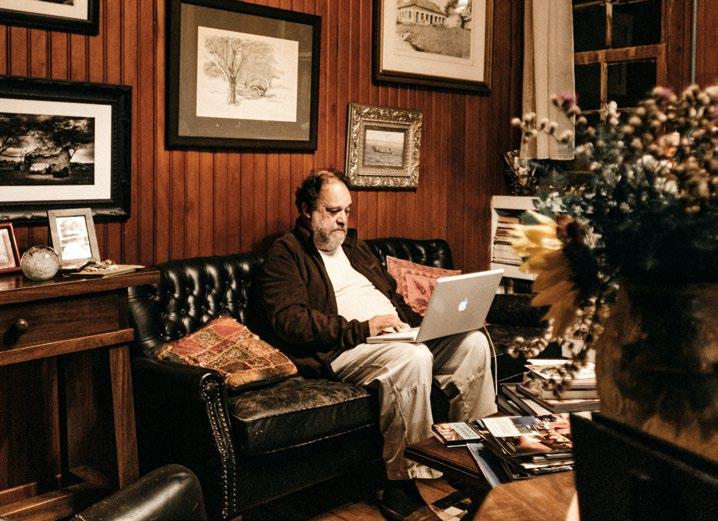
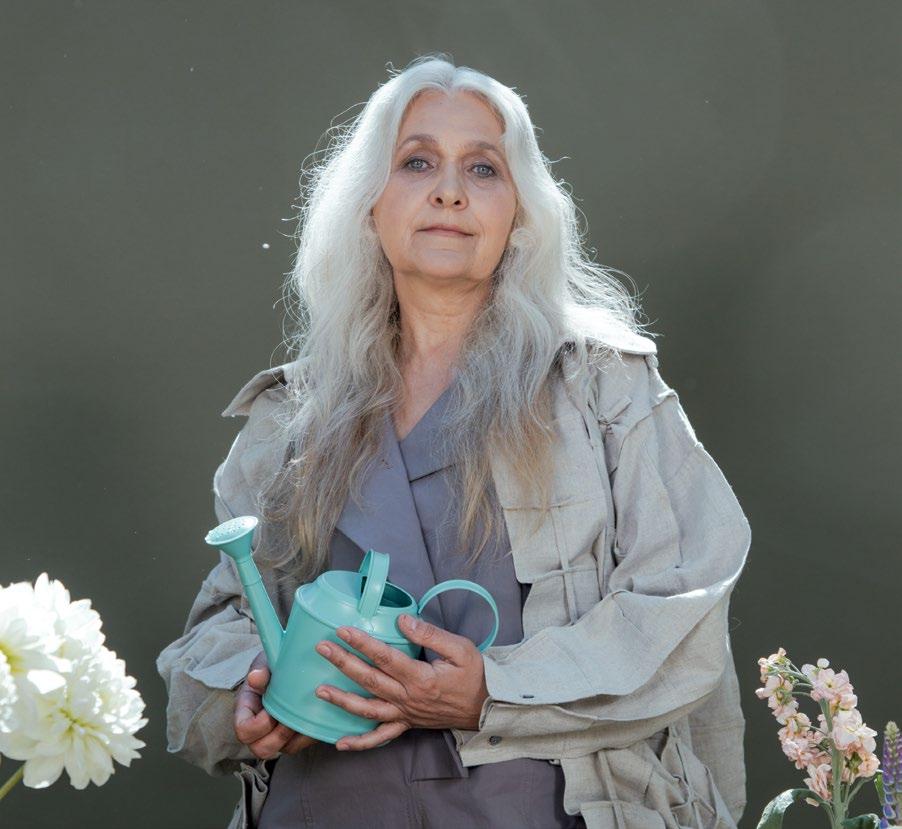
P12 VOL.1 – WHAT’S MY AGE AGAIN?
“
– Australian Human Rights Commission
Diving into the real stuff
STRATEGY STREET
LEFT FIELD REPORT P13
We all have the intellectual understanding that no two people are the same. Yet, paradoxically, in the realm of marketing, we often expect diverse populations of people to act in nearly identical ways... all based on the number of candles on a person’s birthday cake.
This is a symptom of age-related demographic and generational labels, which influences everything from our research methodologies to the way we develop and promote products and services.
Many researchers say not only are these labels false dichotomies, but they also feed a vicious cycle of cultural parody.
Meaning, generational terms and assumptions shape people’s behaviour, rather than vice versa.
Consumers are increasingly rejecting these over simplified (and harmful) age-based categorisa tions, shifting the dialogue surrounding them.
McKinsey pointed out how research focusing on generations can confuse people about where they stand individually and warned against treating such an approach as the “gospel truth.”

VOL.1 – WHAT’S MY AGE AGAIN?
Life Stage: Children/Youth
– Energetic and carefree
– Tech savvy and always connected


– Impulsive or reckless
– Resilient and adaptable
– Influenced by parents over peers
Life Stage: Teens/Young Adults
– Rebelling against authority
– Exploring identity
– Obsessed with social media
P15 LEFT FIELD REPORT
GEN Z Lives on tech Socially conscious
ALPHA Digital natives Materially endowed
Dividing society by generation obscures the real and enduring lines of race, class and gender.”
“
– John Quiggin, Writer and Author
2013–2025
Y
Life Stage: Middle-Aged Adults
– Settled into routine and stability
– Career-focused and responsible
– Facing mid-life crisis or dissatisfaction
– Physically declining or experiencing health issues
– Juggling multiple roles

Life Stage: Adults
– Ambitious + goal-oriented
– Open minded, adaptable
– Embraces new trends and technology
– Seeks personal growth
– Financially dependent or irresponsible
1981–1996
Life Stage: Seniors
– Wise and experienced
– Looking to slow down or retire
– Technologically challenged
– Slower and less physically active
– Memory decline or cognitive limitations
– Fixed mindset or resistant to change
It makes sense that we got to this point. The need to “generalise” or “stereotype” is built into our DNA. The human brain naturally seeks to organise and make sense of the complex world around us by grouping similar objects, ideas, or people into categories. In marketing, this process is no different. Demographics offer a compelling shortcut to decipher the intricate tapestry of a target audience.
But when used carelessly or as a default, marketers can inadvertently perpetuate narrow-minded assumptions based on a mere snapshot of someone’s existence – be it their age, location or life stage.
In fact, the Pew Research Center – one of the world’s leading think tanks – recently announced that they
would be ending their use of generational labels altogether. This comes after hundreds of researchers signed a 2021 open letter calling for Pew to stop using these labels, arguing that they are confusing, counterproductive, and not based in any scientific evidence.
Given that we in the KL strategy team endeavour to always focus on psychographic data rather than demographic, we welcome Pew’s decision to retire their generational labels.
But seeing as they’ve already been widely adopted by many industries – not least of which being our own –we can’t help but feel that Pew has closed the stable door after the horse has bolted...

P16 VOL.1 – WHAT’S MY AGE AGAIN?
purpose
MILLENNIAL/GEN
Motivated by
Job hoppers
1946–1964
WEARINGTHECOSTOF INFLATION GenNet-Zero
AreGenZreallyconsciousconsumers? asksStrategistHarrisGalloway
I’m a Gen Z. Or a “Zillennial” if we really must do the label thing. In for a penny, right? Anyway, I’ve been noticing lately that many of my generation are buckling under the weight of being expected to shop ethically.
To me, it seems us Gen Zs are looked to first for all things social and environmental justice. In a way this makes sense, given our track record of social activism and how we’ve been branded (and branded ourselves) as a more “progressive” generation.
But the expectation that we therefore also shop as paragons of ethicality falls a little short when it crashes up against a different facet of the Gen Z brand: the cost-of-living crisis.
Of course we get that slow fashion is a better way of doing things. You’d have to be delusional not to.
Research shows that young adults like me are the ones fuelling the growth of mainstream giants like Amazon, Shein, and other fast fashion companies whose ethical and sustainability credentials are questionable at best.
As our client Baptist World Aid’s 2023 Ethical Fashion Report highlights, most fashion brands are not doing enough to up their ethical standing. And the average Aussie on the other side buys 56 items of new clothing per year, while as a nation we send 227,000 tonnes of clothing to landfill.
Market research agency Mintel has reported that Gen Z buys more clothes than their older counterparts, with the average Zoomer owning hundreds of dollars worth of outfits they never wear. Can confirm.
WOULD
WE LIKE TO BUY SLOW EVERY TIME? WHO WOULDN’T.
CAN WE ALWAYS AFFORD TO? UNFORTUNATELY NOT.
Analysts say it’s a trend fuelled both by a social media culture that tells us we can never wear the same outfit twice, and an industry that’s made impulse buying and returning items far easier than is good for us.
P17 LEFT FIELD REPORT
It may also very well be because it seems cheaper in the moment to buy a low-quality item. We put a lot of pressure on younger Australians to be champions of green consumerism, but ignore the fact that they’re still green when it comes to navigating financial life. What we’re seeing is that it’s becoming very difficult to buy “slow” – with its sky-high price tag – when things like rent and groceries are already eye-wateringly expensive.
They say “fashion shouldn’t cost the earth.” And while the mind naturally goes to fast fashion, it’s just as true for slow fashion. It’s time we empower Gen Z, who are often the ones living below the Aesop line, to follow their values – without having to forget their wallets.

1

– thredUP Gen Z Fast Fashion Report
THEVIEW FROMH RE
Brands need to stop assuming that Gen Z is their one-way ticket to a socially conscious consumer base. While many of us may truly want to shop ethically, the reality is simply that we can’t always afford it. Slow fashion doesn’t belong to just one generation. So if you’re a brand looking to appeal to the conscious consumer – look further afield, or keep the realities of your audience in sight.
P18 VOL.1 – WHAT’S MY AGE AGAIN?
in 3 Gen Z say they feel addicted to fast fashion.
SCHOOLIES: MY SCHOONER FOR YOUR SMOOTHIE
Could it be that adolescents and young adults are simply snubbing traditional notions of what constitutes risky behaviour? asks Strategist Zach Edwards

P19 LEFT FIELD REPORT
Rebellion 2.0
Many things that were once considered rebellious or countercultural in the past, like underage drinking, smoking or (gasp) drug-taking, are now fairly commercialised, or passé, diluting their original subversive nature. Just watch any episode of Euphoria to see what we’re talking about.

But not every graduate on the beaches of Byron Bay is harbouring a stubbie in their back pocket. Research (and first-hand experience) shows that Schoolies punters are taking it upon themselves to trade the schooners for smoothies, which is reflective of a broader decline in adolescent alcohol consumption globally.
In my five years of volunteering at Schoolies week, the shift in behaviour is noticeable and spreading. While it used to be “cool” to drink until blackout, with each new cohort comes a collective groan at the thought of wasting their nights (and mornings after) on a binge.
Slowly but surely, the act of not drinking has become more rebellious than drinking itself – teenagers are pushing back against what their peers, parents or older siblings expect them to do at Schoolies week.
“Watching the media and news, you may think that lots of young people are using drugs. Research shows however that this is not entirely true [lots of young people are equally not using drugs]” says the Australian Department of Health. And various studies have found Gen Z are less likely than previous teenagers to fall pregnant or be in physical fights.
But it doesn’t mean that the kids are completely alright.
Although there is a clear downward trend around smoking, drinking and using illicit drugs, there’s equally a spike in engagement with other risky behaviours like dangerous selfies, uninformed sexting, truancy and vaping. So the appetite for risk taking is still prevalent.
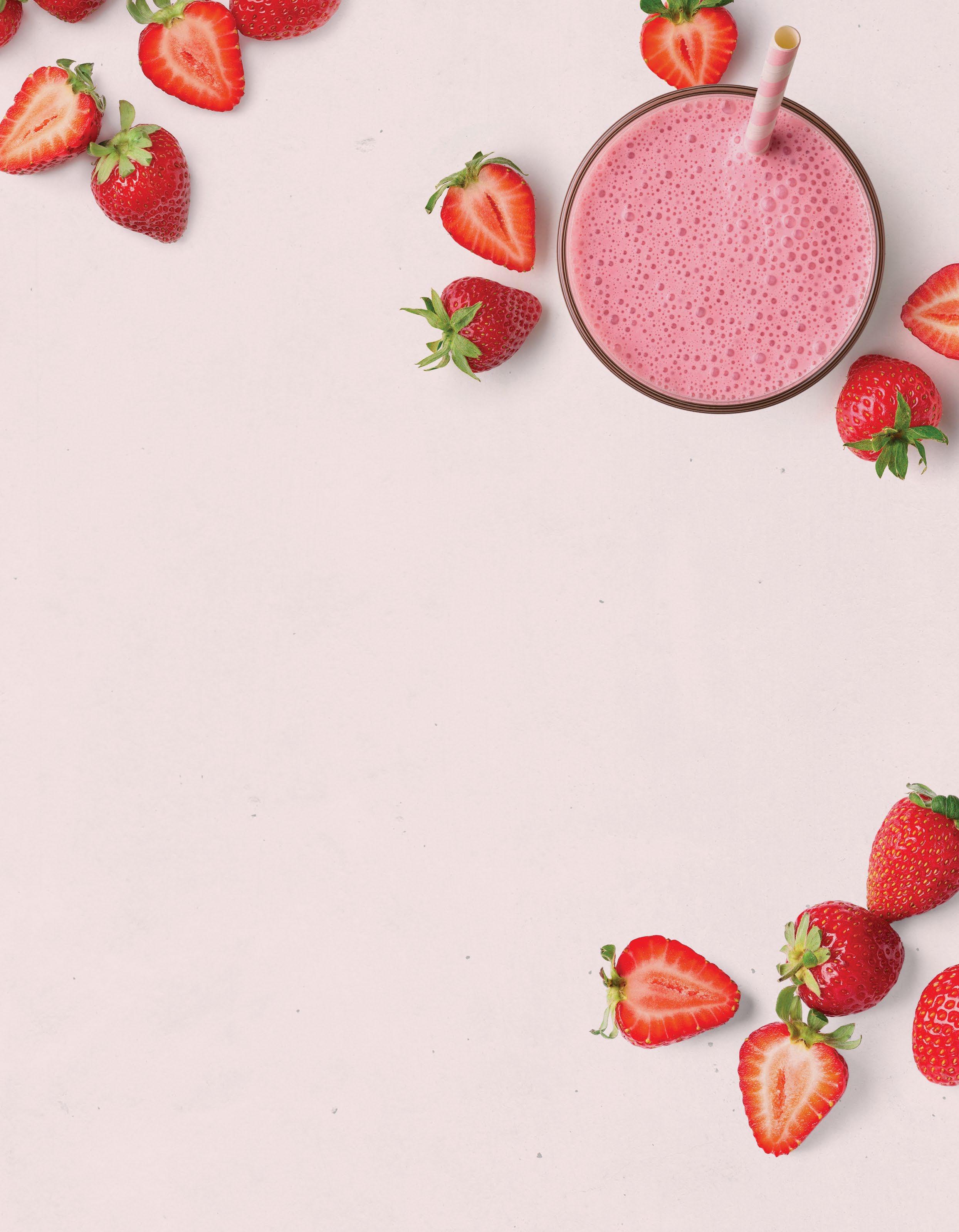
They’re just not taking those risks in their parents’ footsteps.
THEVIEW FROMH RE
Younger generations are still looking to challenge conventions and cliches from previous generations as they forge their own sense of individuality - just not in the ways we once assumed (or experienced). The opportunity here for brands is to position themselves as the antithesis of conventional. Talk about products and services as being an alternative – a wholesome one - that challenges the status quo, and does things different from before.
P20 VOL.1 – WHAT’S MY AGE AGAIN?
CEO Corner
MY BURNING QUESTION: AM I TOO OLD FOR THIS?
Keep Left founder and CEO Caroline Catterall has a small existential reckoning as she ponders her upcoming holiday to the infamous Burning Man.
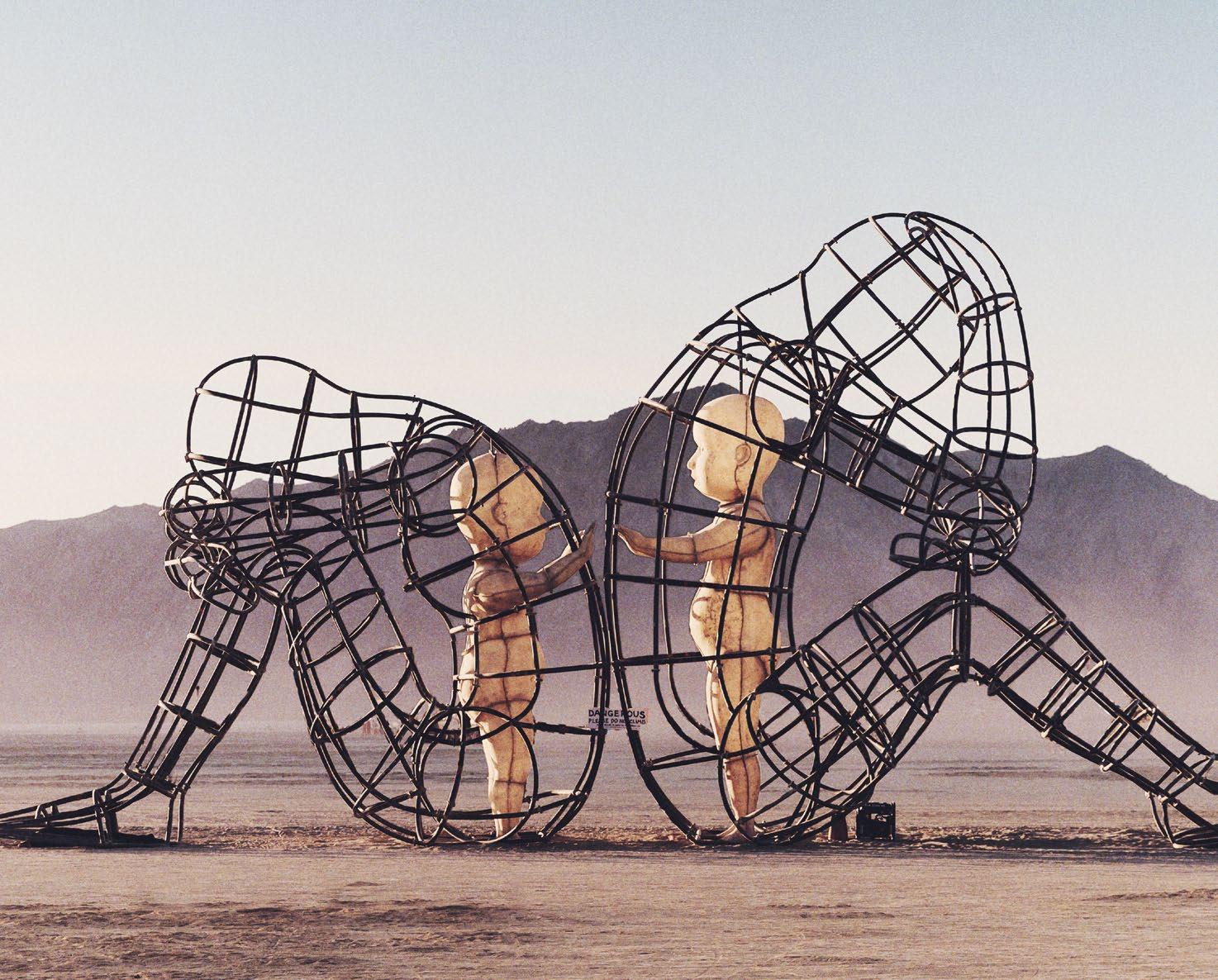
P21 LEFT FIELD REPORT
Earlier this year, on a nondescript day in March, my husband sent me a text saying:
“Dave is organising a crew to go to Burning Man this year for his 50th. He is wondering if we’d be keen to come. What do you think?”
Being a ‘yes’ person, and knowing it was a bucket-list item for Andrew (husband) who is also turning 50 this year, I said: “Yeah, I’m up for it.”
Fast forward to today and we’re under a month and counting until we depart for Nevada’s Black Rock Desert to take part in Burning Man – the annual gathering of 35,000 people to create a pop-up city for one week dedicated to community, art, self-expression, and self-reliance.
I’ve been told a lot of things about Burning Man, and it’s hard not to be a little bit nervous. It’s definitely got a reputation for being pretty loose on a few dimensions.

And while I’m a reasonably resilient person and haven’t lived a sheltered life, something a friend said made me question whether I am, in fact, too old for this. We were chatting about someone who’d attended ten years ago and loved it, but as my pal pointed out, “A lot has changed in the last ten years.” And she’s right!
Ten years ago, my life was very different. While I still feel like I’m in my early 30s most days, the reality is I’ve now got 2 kids, a serious business,
25%
in your 30s
and am mid-renovation. And I’m technically middle-aged. I’m at the stage of life where I plan hikes and wellness retreats more than nights out.
As a self-confessed neat freak and control freak, how will I go living in a camp with strangers as well as the nudity, randomness, extreme weather (so much dust), and general lack of amenities on offer (no shower for seven days, apparently!)?
But on the other hand, I’m super curious to know what this event is about, and if it’s everything it’s talked up to be. While Burning Man has its wild side, there’s also a big spiritual undercurrent and the ability to choose your own adventure. I’ve heard they schedule a marathon as part of the week’s programming, for example.
We talk a lot about Embracing Unlikeminded as a core value at Keep Left, and Burning Man will certainly give me the opportunity to do that. Possibly this desert adventure is exactly what I need to stay fresh and inspired and ensure I don’t quietly slip into middle age unnoticed.
So, consider this my left-field personal development challenge for 2023. And a social experiment of sorts as to whether I can overcome the dust and discomfort to find joy in the self-expression and self-reliance challenge ahead of me and hopefully, find genuinely new perspectives.
While I might take a day or two to get into the groove, I’m determined to not let age be a barrier.
in your 40s
62.5%
12.5% in your 50s
WHEN IS ‘MIDLIFE’?
P22 VOL.1 – WHAT’S MY AGE AGAIN?
(IE. CRISIS TIME)
Take The Old Road
THE ADVENT OF ADVENTURERS
Solo travel is on the rise, with many travellers inspired to jet off alone after being cooped up the last few years, partner or no partner.
But the classic young backpacker trope no longer rings true. Enter the “silver solo”.

One travel company reported that almost half their bookings in 2022 were from customers aged 50-plus, with more than half of these bookers solo travellers. And they’re no longer going slow like the grey nomad couples of old.
The largest group of adventure travel tour operator clients (41 percent) are between the ages of 50-70, and contribute the biggest share to the travel adventure economy. And the most demand adventure activities include hiking, ecotourism, cultural, environmentally sustainable, culinary, cycling, and safaris.
Andrew Laugharne, 71, started travelling solo in 2015. Happily married to his wife, who he says prefers more relaxed beach and sightseeing holidays, he found himself drawn to more adventurous destinations, and decided to go solo. And he’s not the only one...
STRAT CHAT
There is no evidence to suggest that the desire to broaden your horizons and engage in activities that foster personal growth diminishes after reaching a certain age. With increasing life expectancy, improved overall health, and extended working years, it makes perfect sense that the journey of self-discovery would persist well into elderly years.
So? Cater to the human need for lifelong exploration with educational content that is age-agnostic. And don’t assume that gap years, adventure gear and Euro summer are only for 20-somethings.
P23 LEFT FIELD REPORT
I just started to get more wild – I went to South Africa, I’d always wanted to go to India, Machu Picchu...
– Gill Waterton

P24
WHICH BRANDS DO YOU TRUST MORE?
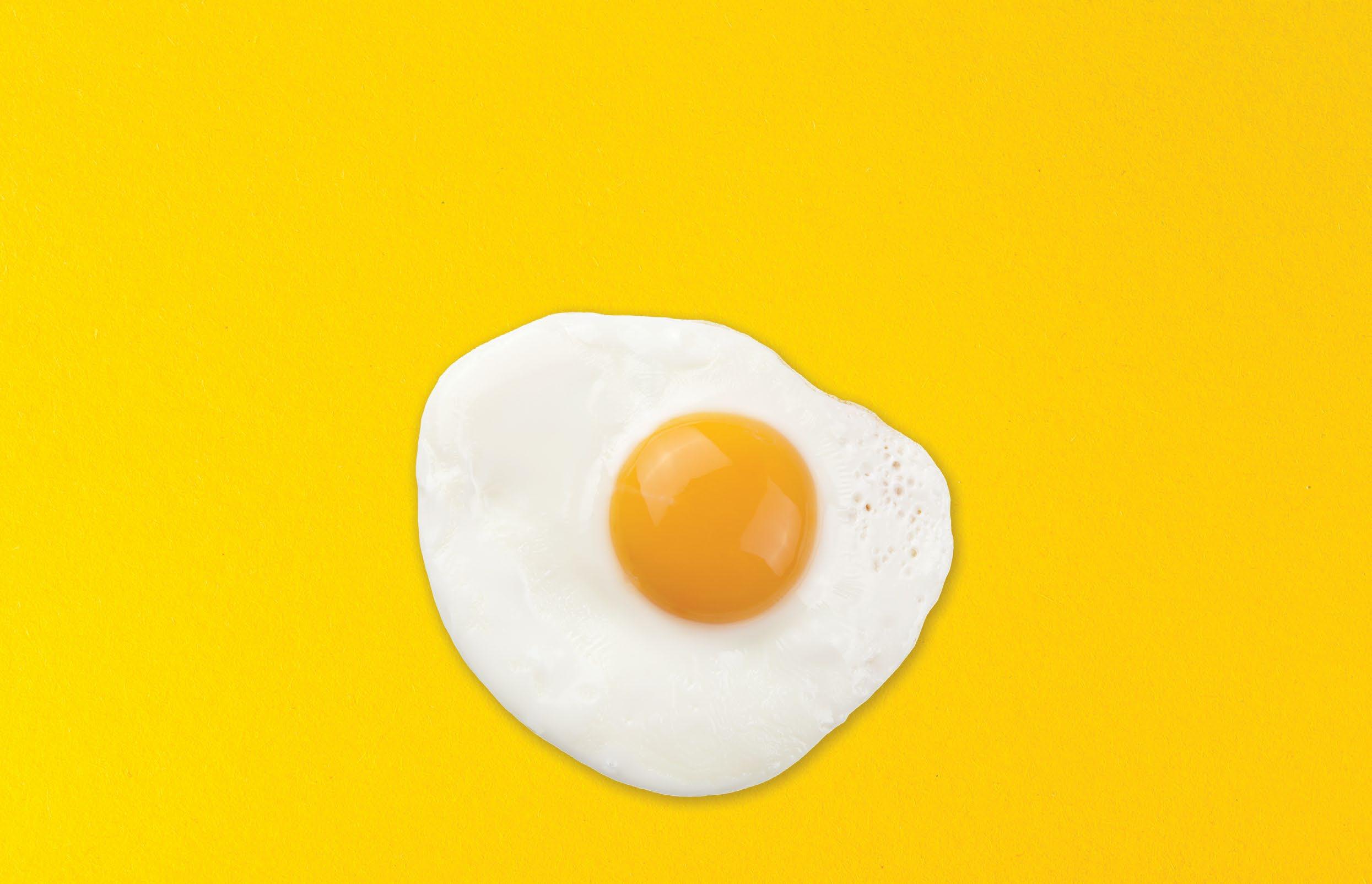
We asked our Lefties...
37.5%
62.5% New brands Old brands
(SPOILER FREE) film
review by Art Director
Ty Ellison
RATINGS
REVIEW FROM MY BRAIN
3.8/5
REVIEW FROM MY HEART 5/5
Noah Baumbach’s 2012 comedy/drama Frances Ha is many things: a story about friendship, betrayal, class, ambition and undatable people – yes. But the quintessential theme that resonated most with me personally is one of self-growth. If you have or are currently going through the transition of quasi-adulthood to fullfledged grown up, there is a chance this film will put you through a bit of an emotional spin.
Baumbach and his co-writer (and frankly star of this film) Greta Gerwig brilliantly depict this deeply personal and at times lonely stage of life. The script presents a delightful abundance of charming and funny dialogue, peppered with moments that will likely evoke some ugly crying
(@me). With the pièce de résistance coming in the way of a tragically cringe-inducing scene that would make The Office’s infamous ‘Dinner Party’ episode feel like a walk in a park. It is here - the true level of Frances’ societal disconnect to her physical age is the most abundantly clear. It is also where my favourite piece of dialogue ever seen on the big screen is placed, which if you know - welcome to this secret world.
While “sometimes it’s good to do what you’re supposed to do when you’re supposed to do it”, Frances Ha teaches us that sometimes it is good to grow (up) when you are ultimately ready to. And that this process of growth is a beautiful thing, even if a little lonely at times.
P25 LEFT FIELD REPORT
I’M SO EMBARRASSED. I’M NOT A REAL PERSON YET.
2001 A CRUMBED CHICKEN ODYSSEY
 By Client Services Director Jessica Williams
By Client Services Director Jessica Williams
I was part of a conversation recently that was debating whether you should go to a restaurant and get their signature meal, or get the thing you most like, even if you have had the dish, or a version of it, many times before. “Do you want to tuck in to an anecdote, or do you want to tuck in to something you love, that brings you comfort?” they asked.
I sat on the fence and said it would depend on my mood. But if I am sitting in a restaurant, it’s likely I want to be surprised, to sample something new. But if I was looking for a plate of food that was guaranteed to be received like a warm hug, it would be a dish that I ate most weeks of my adolescence.
For me, that meal is similar to a chicken schnitzel (but it’s not flattened), or - as we called it - “crumbed chicken.” It was the go-to meat and three veg option in our household, but not once have I sent a text requesting the over-steamed carrot, broccoli and cauliflower that always came on the side.
There is nothing fancy about this meal – but all credit to mum for cooking the chicken perfectly, every time. You might think the main ingredient here is the aforementioned protein – but you’d be wrong. The star of the show in this dish is the butter. The smell of sizzling butter permeating throughout the house is what I remember most vividly.
METHOD
Coat each chicken breast with a light layer of flour, dunk it in the egg wash, and then coat it with crumbs. If you want to do it like my mum did, set up two Spode Blue Italian dinner plates and a bowl - often shifting aside school forms and half-eaten lunchboxes to create a production line; a plate with the flour, a bowl with the egg wash and a third plate with the crumbs, in that order.
To cook, heat a large frying pan to medium heat and cook in batches with the butter and olive oil. The chicken should be swimming in butter to achieve its golden-brown colouring. Don’t heat the pan too high, or the outside will burn before the inside cooks through.
Serve with your choice of side and wait and see if you’re transported back to 2001, Ferntree Gully, just like I am.
INGREDIENTS
– 1 cup of flour
– Egg wash, made with two eggs and 2 tbsp milk is plenty
– Approx 2 cups of bread-crumbs
– 4 x chicken breasts – or enough for how many people you’re feeding and adjust the above accordingly
– 150g butter, minimum
– Olive oil
P26 VOL.1 – WHAT’S MY AGE AGAIN?
Ruminations on life, love and the musicverse
by Executive Creative Director Blair Kimber
REMINISCENCE BUMPS IN THE ROAD
A couple of months ago, I latched the rear doors of the truck filled with remnants of a previous life and pulled onto Paramatta Road for a solo road trip back to Melbourne. A few songs into the journey, mid-The War On Drugs sing-a-long, I was reminded of the power music has to extract such visceral reactions to memories long thought forgotten - how music can mark moments of significance by intertwining the song and the feeling forever. This was one of the moments, and it floored me.
Music is one of the few things with the ability to transcend time. A song ages, yes, but it defies chronology by transporting you back to a previous life. Hands up all those who have a song brutally banished from their life playlist because of an emotional imprint you can’t erase and have no control over.
Upon entering the ‘adult’ world of earning money, I graduated to the glorious Compact Disc. Yup, that’s right, objectively the pinnacle of audio mediums. Pristine sound, crystal clear, no surface noise. And with every dollar earnt, my collection – nay, obsession – grew and grew.
I lived in Sydney for a good chunk of my 30s. But when an interstate job beckoned, I packed up my crap and left a lot of it in storage. Eventually the time came to shift it all back down the Hume – CDs included. I couldn’t wait to hit the road and listen to 10 hours of music straight – this time was a gift to lose myself in music. My recent musical obsession is The War on Drugs, and there was no better way to kick off the trip.
“I never took our love for granted. You never left me wanting more. But you’d never recognise me, babe. I don’t live here anymore...”
As a child of the eighties, my love of music starting with listening to albums ‘burnt’ to trusty TDK D90 cassettes. Mix tapes of songs stolen from the FM airwaves and begging friends’ older brothers to copy the latest Bon Jovi record.
So, there I was, cruising down Parramatta Road, bopping along to Adam Granduciel and co., settling in to 10 hours of bliss. Then, not three songs in, as I was literally turning on to the Hume, I Don’t Live Here Anymore came through the speakers.


And then it hit me: I would never live in Sydney again – certainly not in the way I had ten years ago. This was where I met my wife, formed my greatest friendships and worked out who the hell I was. A defining era. And it was over. Perfectly punctuated by a mere song.
With tears streaming down my cheeks, a whole age and city was forever wrapped up in the 5 minutes and 27 seconds of a song already loved, now etched in my brain and filed under “damn-that-time-inSydney-meant-a-helluva-lot-to-me”.
I then realised the music gods really know what they’re doing: they’ll always connect you to the moments that matter most.
P27 LEFT FIELD REPORT FUN CT
FUNFACT
The ‘Reminiscence Bump’ is a phenomenon where people have a greater recollection of memories from their adolescence and early adulthood, typically between age 10 and 30.
MY TOP 5 REMINISCENCE BUMP TRACKS
1. 4. 3.
SOMA
Smashing Pumpkins Siamese Dream
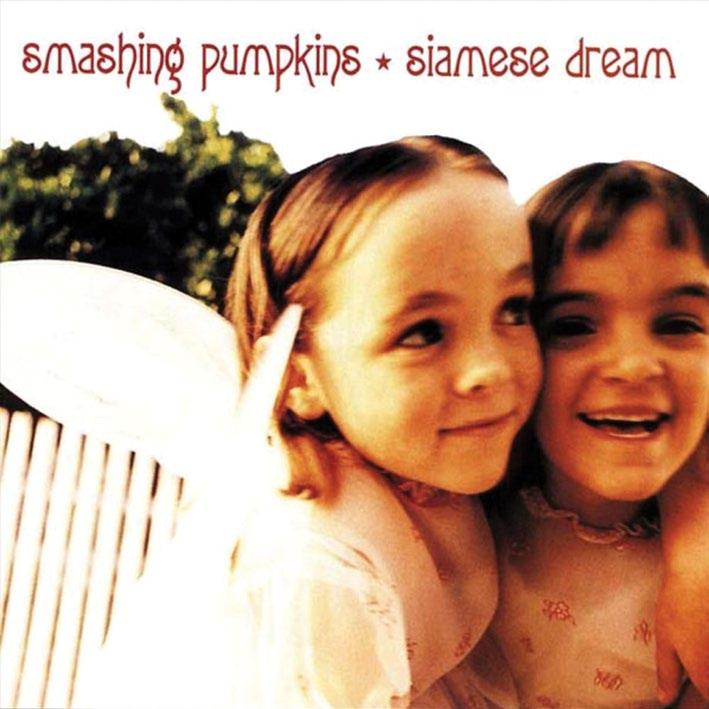
Takes me back to snogging my first girlfriend in the mosh pit at the Big Day Out.
2.
BELLBOTTOMS
The Jon Spence Blues Explosion Orange
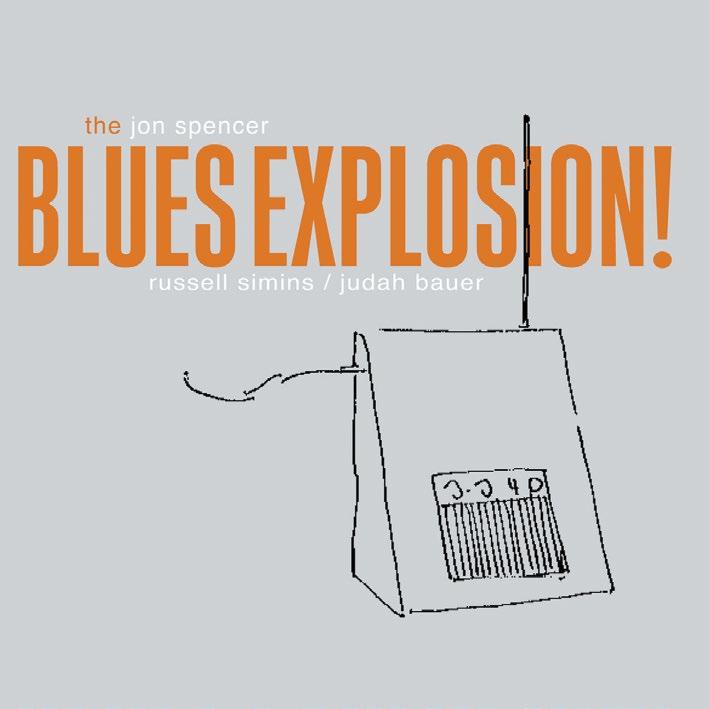
There I am, discovering real music as Jon Spencer hung from the roof of the Espy band room, via power cables.
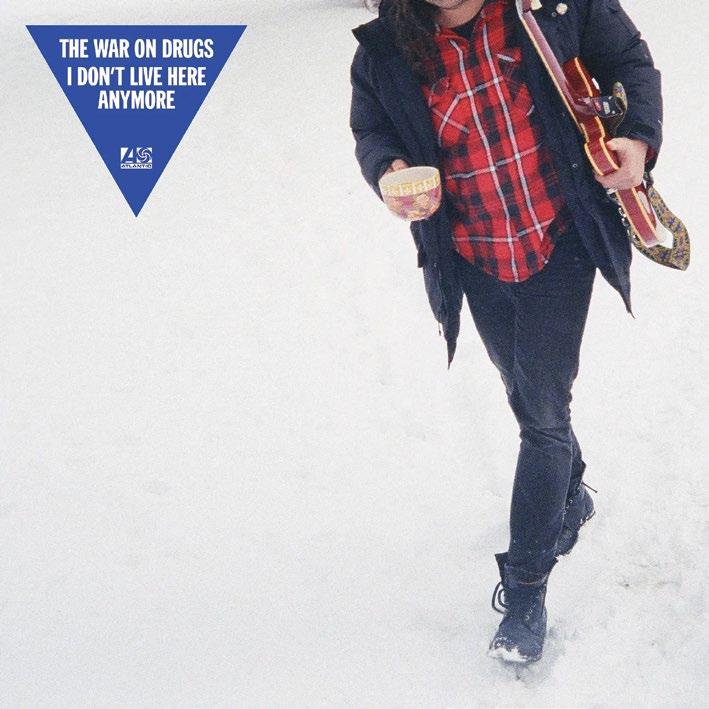
IT DAWNED ON ME WISER TIME
The Black Crowes Amorica
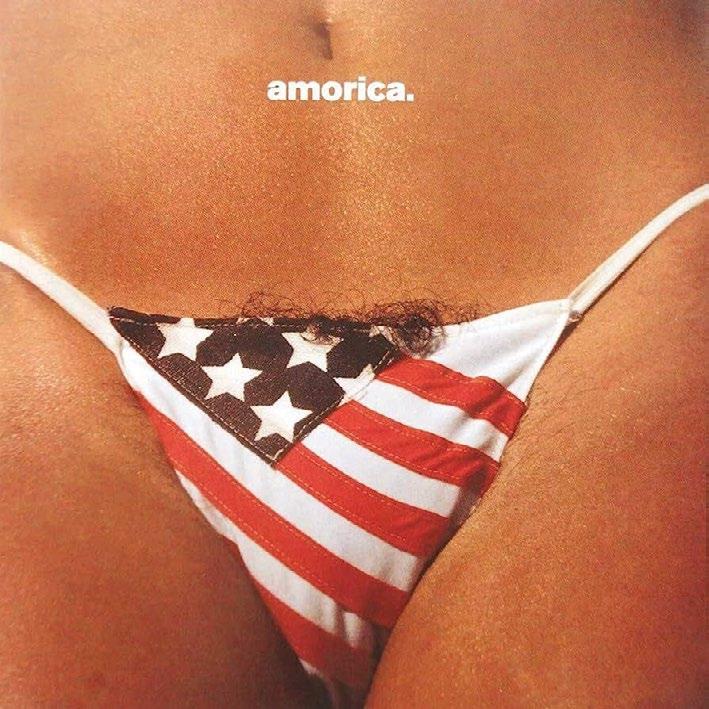
My first true leaving song as I closed a big chapter of my life at The Shepards Bush Empire in London.
Wilco

The Whole Love
Jeff Tweedy’s was the first grown-up music I fell for. This song became an unforgettable moment as I walked down the aisle with the real love of my life.
5.
I DON’T LIVE HERE ANYMORE
The War on Drugs
I Don’t Live Here Anymore
Most recent tearjerker.
P28 VOL.1 – WHAT’S MY AGE AGAIN?
IN PRAISE OF AGE A Leftie Perspective
We asked our Lefties to share their love for the people in their lives who occupy totally different demographics to them.
WHO’S YOUR FAVOURITE OLDER PERSON AND WHAT DO THEY TEACH YOU?
My dad. How to compartmentalise things and stay calm in stress.
My deceased Aboriginal elders. Connection to land and spirit. Some songwriters with stories to tell.
My nan. She’s currently travelling through the Italian countryside with her friends (she’s almost 80). She teaches me to live life fully and make connections everywhere you go.
My late grandma who taught me to be adventurous, catch all the crabs, collect all the shells, explore all the caves, dive from tall rocks but also to stop and then enjoy a simple moment eating a corn cob while looking at the sun setting into the sea.
As I’ve gotten older I’ve come to appreciate my grandparents a lot more, growing up in a time where technology wasn’t as prevalent and genuine connections and community were a massive part of their life. I hope when I’m that age I’ll be able to remember the names, faces and lessons of everyone who was a part of my life.
Whang-od Oggay. That you can be a maddog at any age. Plus that a 103 year old can be smoking hot.
WHO’S YOUR FAVOURITE YOUNGER PERSON AND WHAT DO THEY TEACH YOU?
My little brother. How to be joyful and creative and unashamed of being yourself.
Greta T. Against many odds she stands for environmental action against popular politics and established patriarchy
My nephew Coco. That anything can be fun if you bring the right attitude to it.
My 13 year old cousin is teaching my a lot about navigating love and friendships in the modern world - it’s tough. She’s taught me a lot about exploring identity.
My younger brother (22) but meeting him and you’d think he was a lot older. he’s mature, level headed, and teaches me to have fun while also being a responsible member of society
My cousins’s son Nicoló. He is 11, shy and pensive, loves books and drawing but is also a football fanatic. He does not care about showing his friends that he is a manly man yet and he is always apologetically himself. I hope the world never changes him.
My younger brother Kyle, whose infectious humour, smile, and spirit, taught me how to better connect with the people around me.
P29 LEFT FIELD REPORT
I’m not interested in age. People who tell me their age are silly. You’re as old as you feel.
– Elizabeth Arden
We asked our Lefties how old they actually feel, and the results where just as wild as we expected: no one felt the age they actually are.
Actual age: 25
Actual age: 53
The age you feel: 103
The age you feel: I think in my mind I feel younger than I am. And I don’t quite know why that is. Maybe it’s losing two years of my life to COVID. I went into the pandemic 22 and came out 24. Part of me still feels as old as I was beforehand, even though my life now is completely different to what it was back then.
Actual age: 38
The age you feel: 34
THE PODCAST THAT GAVE ME BACK MY GRANDMA
Copywriter Ruby Gill reviews Julia Louis-Dreyfus’ new podcast, Wiser Than Me.
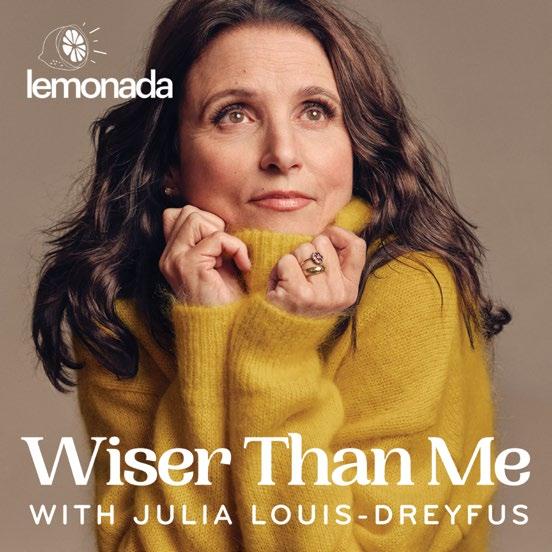
Actual age: 35
The age you feel: Head: 27, Body: 55
Actual age: 24
The age you feel: The ‘feeling’ of age is purely a spectrum that changes on the daily for me.
Actual age: 40
The age you feel: 31
Actual age: 24
The age you feel: Simultaneously 21 and 30
Actual age: 32
The age you feel: 25 and 50 at the same time
Actual age: 45
The age you feel: 30 during the week, 20 on weekends
I’ve never watched Seinfeld (less an indication of my age, and more because I was only allowed to watch Animal Planet until I turned 17), so I had no idea who Julia Louis-Dreyfus was when I clicked on her new podcast Wiser Than Me. But context was irrelevant - within 20 minutes, I’d regained access to something I thought I’d lost forever: a grandmother’s advice.
The premise of Wiser Than Me is that Julia “wants to know why the hell we don’t hear more from older women,” so she chats with people over the age of 65 - think Jane Fonda, Carol Burnett, Amy Tan, Diane von Furstenberg, Isabel Allende - to get their wisdom. Every episode, I wipe my tears in Hoddle St traffic as guests share hard-earned views on what they wish they’d said yes (or no) to, how they feel about sex after 70, and how they cope with ‘endings.’
There’s one thing that everyone answers similarly: they’re okay with their age. Not because it isn’t hard, or because they’ve had it easy. There’s just a level of acceptance and respect for their own bodies and experience that I think a lot of western cultures have lost. We fear the only thing that is inevitable. We stigmatise nature. And we ignore the voices who can guide us best: our elders.
Actual age: 28
The age you feel: My soul 18, my knees 80.
I no longer have any biological grandparents, and tbh some of them were pretty rogue, but at least I have this podcast to grow me up big and strong. 10/10 would recommend.
P30 VOL.1 – WHAT’S MY AGE AGAIN?
Luminous Anti-Anti Ageing Cream
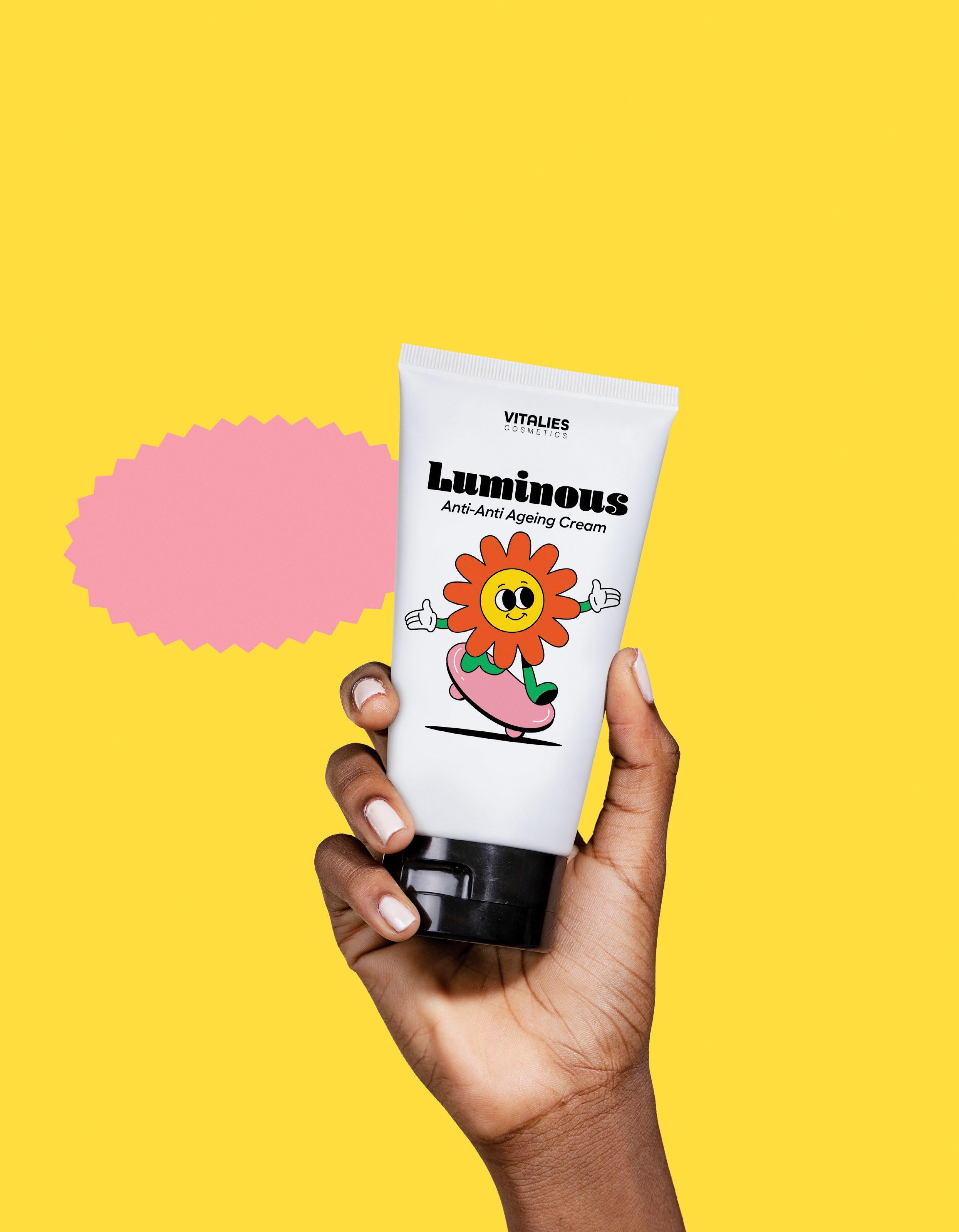
Feel the age you tell people you are
By using this product, you understand and accept the potential for adverse effects, which may include increased wrinkles, fine lines, sagging, or other signs of ageing. Luminous Anti-Anti Ageing Cream may cause temporary or permanent changes to the thickness of your skin, allowing you to be more yourself.

























 By Client Services Director Jessica Williams
By Client Services Director Jessica Williams






